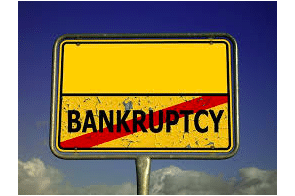Bankruptcy can be extremely beneficial to individuals who are intimidated by their lenders and bills. Filing for bankruptcy, like most other legal proceedings, has precise conditions that must be met. Additionally, specific procedures must be performed in order for you to acquire your bankruptcy clearance. You must, however, do it right or you risk making some extremely costly errors.
You can take the help of a bankruptcy lawyer if you aren’t familiar with the ins and outs of bankruptcy law. They’ll assist you and make certain that you follow the proper procedures and partake in the appropriate activities in order to acquire the debt relief you require.
Avoiding bankruptcy errors will make your case run more smoothly and cause fewer issues as you seek your relief. Here are four frequent bankruptcy mistakes to stay away from:
Not Considering Alternatives to Bankruptcy
Even though bankruptcy can be a good strategy to get out of debt, it isn’t the ideal solution for everyone. Several considerations will play a role in determining whether bankruptcy is best for you.
It is essential to involve an experienced bankruptcy attorney before filing for bankruptcy, even if it is expensive. He will assess your financial status and advise you on the best course of action moving forward.
Making the Wrong Bankruptcy Filing
If bankruptcy is the best alternative for you, the next step is to figure out the type of bankruptcy you should submit. A bankruptcy lawyer can help and advise you on the type of bankruptcy you should file. Bankruptcy cases basically either fall under Chapter 7 or Chapter 13.
If you decide to file for bankruptcy without their assistance, choosing the improper bankruptcy chapter can be a costly mistake. This could result in your case being dismissed, you not receiving a discharge, or you losing the assets you’re seeking to safeguard.
Failure to Make a Full Disclosure of Your Assets
For the sincere but unlucky debtors, the purpose of bankruptcy is to have their debts discharged. The debtor must be truthful to improve his chance. When you apply for bankruptcy, you’ll need to produce bankruptcy documentation to file with the court. Details of all your belongings, like your home, automobiles, banking information, and other assets, should be part of this process.
If you fail to report or hide any of your debts, it will cause complications as your bankruptcy case continues. This could cause your case to be delayed, or your bankruptcy trustee could see it as a fraud effort. Working with your bankruptcy attorney to report all of your assets in your bankruptcy paperwork is worthwhile to avoid hassles and problems.
Failure to Finish the Financial Management Course
You must finish two credit counseling courses while in bankruptcy. Before filing for bankruptcy, you must speak with a credit counseling agency and undergo a credit counseling course approved by the United States Trustee’s Office.
Also, before receiving your release, you must complete a personal financial management course. You will not be entitled to a discharge if you do not complete the final course. For most people, it’s advisable to finish the financial management course right away. However, your situation might be different. If that’s so, your attorney may advise you otherwise.
Taking Time to File
If you are aware of the difficulties you are having with your debt, one of the most common mistakes you can make is to put off speaking with a bankruptcy attorney for too long. In a large number of cases, debtors can save a significant amount of money by dealing with the problem sooner rather than later.
If you have a debt problem resulting from a loss of employment, you should not wait until you have regained the job to file. You should act quickly regardless of whether you’re underemployed or unemployed if you’re thinking about filing for bankruptcy.
Conclusion
If you’re thinking about filing for bankruptcy, the most remarkable thing you could do is educate yourself on the process. We recommend that you study various bankruptcy blogs, contact a bankruptcy lawyer, and watch numerous videos.
A competent bankruptcy attorney can explain the bankruptcy laws and process to you and assist you in evaluating your present financial status, therefore, avoiding making mistakes.
Author bio– Hannah Gilbert is a freelance writer who offers ghostwriting, copywriting and blogging services. She works closely with B2C and B2B businesses providing digital marketing content that gains social media attention and increases their search engine visibility




